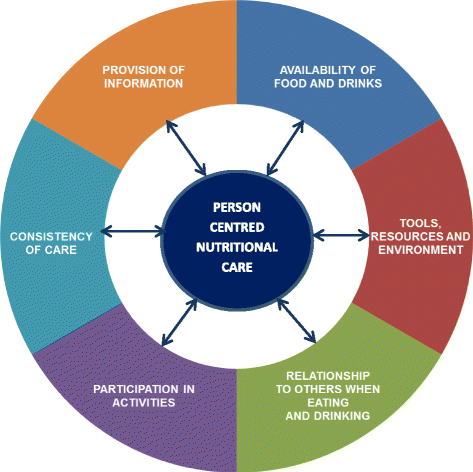Response to Jennifer (Nutrition Care Provision)
Hello Jennifer,
Thank you for an educative and insightful discussion. Registered nurses’ scope of practice still faces multiple limitations, such as the one you have mentioned, providing nutritional education. Nutrition care provision is critical in promoting healthy bodies and minds and reducing morbidity and mortality rates and medical costs (Mogre et al., 2018). Nurses are less prepared during their education to offer nutrition education and care, limiting their scope of practice (Nutrition Care Provision).

However, there are specialists like registered dietitians who offer nutrition education and can collaborate with nurses to ensure comprehensive nutrition care using a team-based care delivery model (Riverin et al., 2017). This model requires different professionals to offer their expertise in a collective effort to ensure the quality of care and optimal patient outcomes.
References
Mogre, V., Stevens, F. C. J., Aryee, P. A., Amalba, A., & Scherpbier, A. J. J. A. (2018). Why nutrition education is inadequate in the medical curriculum: a qualitative study of students’ perspectives on barriers and strategies. BMC medical education, 18(1), 26. https://doi.org/10.1186/s12909-018-1130-5
Riverin, B. D., Li, P., Naimi, A. I., & Strumpf, E. (2017). Team-based versus traditional primary care models and short-term outcomes after hospital discharge. CMAJ : Canadian Medical Association journal = journal de l’Association medicale canadienne, 189(16), E585–E593. https://doi.org/10.1503/cmaj.160427
Response to Kylie
Hi Kylie,
I enjoyed reading your discussion for its clarity. You have discussed collaborative models of care delivery as integral to offering better patient care, safer nursing care, and better patient outcomes. Collaborative care models are fundamental in addressing the increasing disparities affecting patient outcomes (Martin & Bryant, 2018). Interprofessional is embedded in collaborative care models, promoting relationship-building, communication, and collective effort in problem-solving (Sanchez, 2017) (Nutrition Care Provision).
I agree that advanced practice registered nurses can be involved in health screening schools and other places, working closely with teachers and school nurses to promote health and prevent disease among school-going children. Interprofessional collaboration is required in such settings because teachers have a role to play.
References
Martin, R. L., & Bryant, J. A. (2018). Collaboration.
Sanchez K. (2017). Collaborative care in real-world settings: barriers and opportunities for sustainability. Patient preference and adherence, 11, 71–74. https://doi.org/10.2147/PPA.S120070
